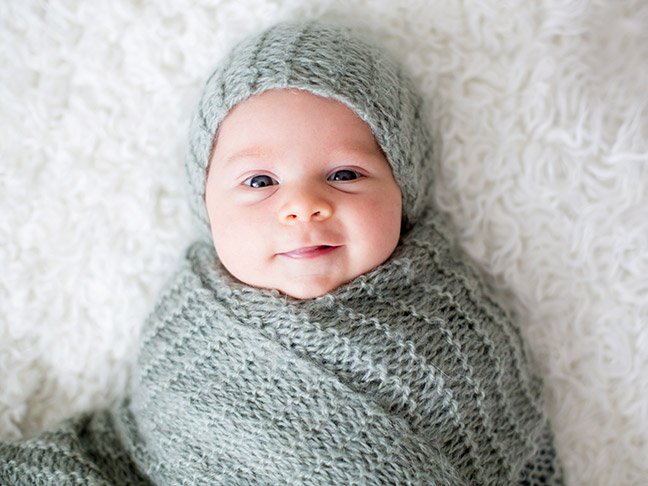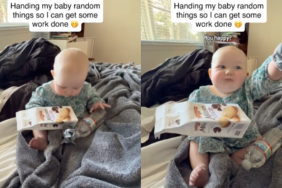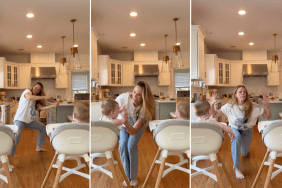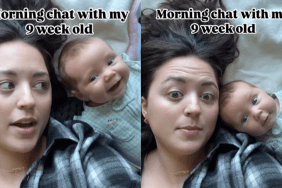There’s nothing quite like looking at your infant and seeing a grin spread across their face for the first time. For harried new parents, a baby’s first smile—even if deep down we suspect it’s just a reflex—can give us the reassurance we need to feel like we’re doing a good job. It makes the sleepless nights and endless feeding cycles feel all the more worthwhile. So when do babies smile? Here’s everything you need to know about this developmental milestone.
Do babies really start smiling as newborns?
Many parents notice their newborn smiling at times soon after birth. It is a reflexive smile that can be a sign of comfort, falling asleep, or passing some gas. These early smiles are fleeting and signal response to something physical.
When do babies smile for social reasons?
Starting between 6 and 12 weeks of life, babies develop a social smile—an intentional gesture meant just for you. The social smile is an significant milestone. It shows that your baby is developing communication skills, engaging in positive participation in a relationship, and is expressing feelings of happiness and interest.
The social smile evolves and becomes more sophisticated as babies grow. The first social smiles are likely to occur when a baby gazes at a parent, sibling, or familiar caretaker. The smile often elicits a reciprocal smile from the parent, and this encourages the baby to continue to using smiles to show interest.
When do babies smile their first BIG smile?
Between 3 and 6 months, babies work on their smile skills. They are no longer dependent upon a parent or sibling to initiate a smiling contest. You might see your baby smiling at a toy or favorite stuffed animal. By this point, babies understand that smiling communicates positive feelings, and they smile at objects they enjoy.
Babies also learn to learn to use big smiles with open mouths during this time. These are the smiles that melt hearts and trigger tons of excitement from parents and siblings. It’s shift from: “look at that happy smile” to: “look how positively happy he is!”
This is also the time when babies learn to stop smiling or look away when they are overstimulated or need a break. It’s important to read and respect those cues. We all need breaks sometimes, even little ones.
Why doesn’t my baby smile at everyone?
When your baby becomes more aware of strangers, you might find that he smiles for some people and buries his face in your neck when interacting with others. This is a very healthy part of child development. It takes time for babies to make sense of the world around them. It’s perfectly natural to return some smiles, but not others.
When do babies use smiles to communicate?
By about 1 year, many babies will use their smiles to attempt to converse with parents and siblings. You might catch your baby smiling at the family dog then turning back to you to smile and make eye contact with you. This is your baby saying, “That’s a funny dog!”
Related: When Do Babies Start Talking?
What if my baby doesn’t smile?
Like all developmental milestones, babies learn to smile within a certain age range. There is no “right” age to see that first smile, and some babies smile more than others. You might also discover that your baby is secretly smiling at the pet cat all day, but doesn’t smile as much when he’s cozy in your arms.
Here are a few reasons why your If you try to coax a grin out of your baby and it isn’t working, don’t stress. Your baby might need more time. Here are a few reasons why your baby might not be smiling when you expect her to:
- If your baby seems to smile past you, but not at you, your baby’s likely trying to avoid overstimulation.
- If your baby was born premature, she might need some extra time to hit this milestone.
- If your child consistently fails to reciprocate smiles with loved ones by six months, it’s a good idea to check in with a pediatrician.
Photo: Getty








